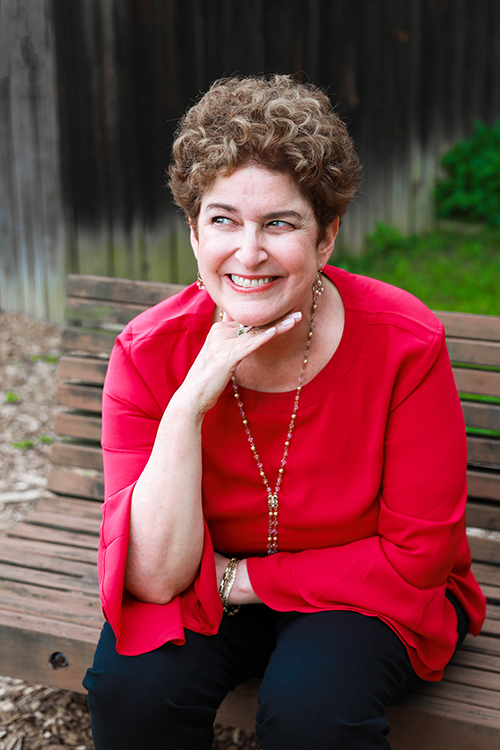“A man never gets so old that he forgets how it was being a little boy.” ~Ward Cleaver to his son, Beaver, on Leave it to Beaver
Everyone is busy running on the treadmill we call Life. We have so much to accomplish over the course of one single day.
Deadlines to meet, bills to pay, emails to answer, texts to acknowledge, appointments to keep. We take care of our families and ourselves, trying to balance the responsibilities of being a good parent, grandparent, spouse, or child.
The speed of our treadmill gets faster as we age, and some of our responsibilities may become more burdensome, financially difficult, or exhausting.
Lucy Carmichael: “Weren't you ever a teenager?”
Theodore J. Mooney: “Well, of course, what do you think?”
Lucy Carmichael: “I thought one day they opened the bank vault, and out you popped, full grown and stingy! “~From The Lucy Show, 1962
During this stage of our life, which I call My Second Chapter, some of us are “empty nesters,” or perhaps we’ve recently retired. Some have changed jobs or moved to another location.
Some are stuck in a rut with an unfulfilling job. The current economic crises and discouraging job outlook have forced some to work longer while saving less. Family and friends move or pass away. Health issues arise, and our free time is filled with doctor appointments and staying closer to home.
When we are in our Second Chapter, we can experience depression, anxiety, fear, boredom, or loneliness. If we feel this way, we need to take a step back and think about how we can make things better for ourselves.
The ups and downs of life are inevitable. Yet if we prepare and challenge ourselves to learn new and useful tools, tools that are beyond our normal comfort zone that may enhance and enrich our lives, isn’t it worth a try?
I believe it is!
To illustrate what I mean, I thought I’d share a few of My Second Chapter tools:
Journaling – Over the years, many people have told me about the power of journaling. According to Dr. Andrew Weil (www.drweil.com):
"Therapeutic journaling" or "expressive writing" are the terms used to describe the writing you do to deal with stress, pain, or chronic disease can help a lot. An early study of the effects of journaling showed that it improved immune function in healthy people, and in 1999 the Journal of the American Medical Association published a study from North Dakota State University showing that writing about the stress in their lives actually reduced physical symptoms among people with asthma or rheumatoid arthritis.”
I began journaling when stress was affecting my health. Create your own, using sentences and paragraphs, or jot down random thoughts here and there.
It feels good; make it your own. There is no right or wrong way; you are the Editor in Chief of your story!
Meditation – The Internet is a great place to find basic instruction (try www.youtube.com or Yoga Journal.)
Studies have shown that meditation can re-wire our brains through the power of thought. It has been proven that it helps us to “de-stress”, maintain health, increase our ability to concentrate better and enhance emotional stability.
I recommend you read about meditation on Dr. Weil’s website - The Self-Healing Benefits of Meditation – by Susan Piver, who recommends learning about meditation from a reputable resource. Check out her website at www.susanpiver.com.
Yoga – I love my gentle yoga class, and the pace of the class is perfect for my needs. I've re-learned how to breathe – YES, BREATHE!
In times of crisis, we tend to hold our breath, and our muscles become tense. When focusing on your full inhalations and exhalations, you feel your anxieties melt away. Stretching, balancing, and breathing make you more aware of your body; this carries over into your daily life...
Visualization - I've learned over the years to use visualization to help me de-stress and battle my MS, making me healthier. I know it can help you, too.
Use your own images and try visualization. If you want to seek a reputable guided imagery therapist, I suggest you look at the website for The Academy of Guided Imagery.
To read up on this, I recommend an article on Dr. Andrew Weil’s website - Guided Imagery Therapy.
"Animals are people too, ya know!" ~Radar O'Reilly, M*A*S*H Pets – Pets give you unconditional love, and it is documented they help lower blood pressure, are a constant source of comfort, and boost peoples’ moods.
These are a few tools I use to empower myself for My Second Chapter. What do you do?

Cathy these are great tips for anyone at any age to consider. I like the Chopra Centre's 21 day meditation challenge as a good and easy way to get started with meditating 🙂
Love all of these tips! All so true. Thank you for sharing, Cathy. Welcome to the Livefyre community, and please feel free to let us know if you have any questions or feedback for us. We'd be happy to help.
Where there is a will theres a way. Live for today.